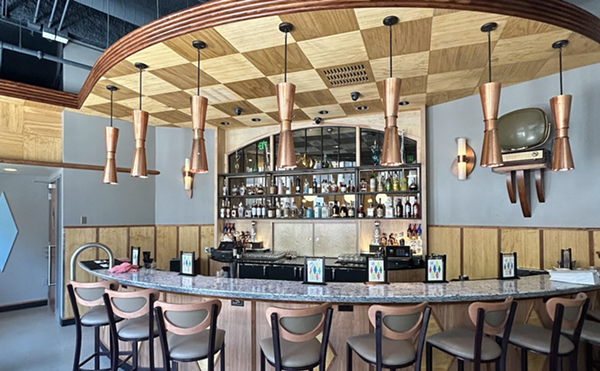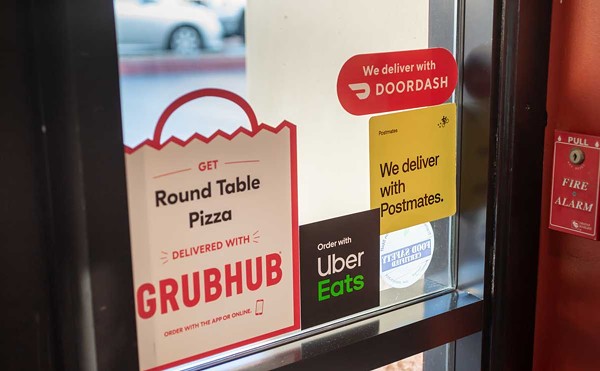The idea was revolutionary in fast food.
Start workers at $12 in job-hungry metro Detroit where unemployment ran rampant. Keep the menu brief — burgers, chicken, fries, shakes — and use only hormone-free, never frozen meat. It was this strategy that caught national headlines when Moo Cluck Moo opened its first location in Dearborn Heights four years ago.
The Daily Beast called the co-owners Brian Parker and Harry Moorhouse's insistence on paying a living wage "radical." Though met with their share of criticism for the bold move, the duo bumped up the pay to $15 an hour — unheard in the fast-food industry, which at the time was trying to answer to nationwide walkouts over low pay. A second location in Canton followed, as well as a spot in Ford Field — suggesting the partners' brash disregard for the status quo was actually smart for business.
That was until earlier in the fall fall, when the ownership ditched their brick and mortar business model and downsized operations. For the past several weeks, a small crew has been dispatched in a rented food truck, parking outside business parks and high-rises all over the region to bring Moo Cluck Moo's wares to harried office workers or hungry bar-flies.
"This makes too much sense," Moorhouse says. "People don't want to travel 20 to 30 minutes for lunch... We're doing more for lunch, mobile, than we ever did with brick and mortar."
Food trucks are cheaper than renting or owning a physical property, and can spread a restaurant's reach farther than a single location. And while we're more accustomed to seeing food truck operations evolve into full-scaled eateries (Katoi, for example), traditional restaurants are starting to see the value in having a mobile kitchen. Chains like Andiamo, Big Boy, and even Motor City Casino all feature food trucks used mostly for promotional purposes or special events.
Moorhouse sees the business model not just as a complement to a chain, but as a promising new enterprise by itself — after all, a recent CNBC report says that food trucks are an estimated $2.7 billion business.
When leases for both locations ended, Parker and Moorhouse were already prepared to make the switch. They had spent the summer researching other food truck operations and crunching the numbers, comparing operation costs.
Instead of paying rent for two stores, Moo Cluck Moo now uses a commissary kitchen in Plymouth. Each morning a team of employees stocks the truck with enough food for each stop. In December alone, the truck was booked in 14 locations throughout metro Detroit.
The shift has affected labor costs, though. Moorhouse says employees are paid between $14-$18, but new outfit requires only about half the staff, down to about seven or eight employees. That could change. Over the next several months, the company plans to purchase a small fleet of its own trucks.
Whether the shift to all-mobile is a win for efficiency or a loss for employees who were displaced after the closures is up for debate, though Moorhouse says with the smaller staff, he can afford to pay the remaining crew more.
"We can't expect loyalty or hustle at work if we don't pay them fair," Moorhouse says. "This notion that we've heard in the past four years, that these jobs are unskilled, that they don't deserve that much is just hog wash. These people work hard, and requires a heck of a lot of skills."
Information about the Moo Cluck Moo's food truck schedule can be found at moocluckmoo.com.





